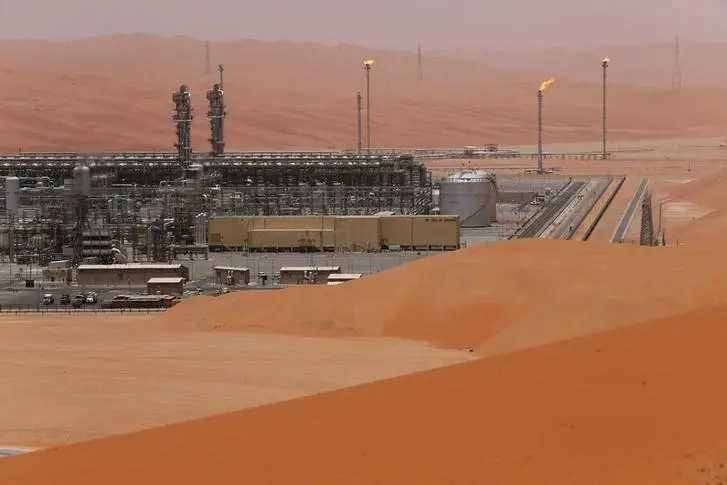PHOTO
The attacks on Saudi oil installations on Saturday are unlikely to reduce the Kingdom's oil exports dramatically since it holds a significant amount of crude oil and petroleum products in storage, Barclays said in a note on Monday.
Saudi Arabia is the world's biggest oil exporter and the attack on state-owned producer Saudi Aramco's crude processing facilities at Abqaiq and Khurais has suspended the country's output by 5.7 million barrels per day, or more than half of its current output.
Oil prices soared on Monday with Brent crude posting its biggest intra-day percentage gain since the start of the Gulf War in 1991 after the attack shut about 5% of global supply.
Markets are also expected to look beyond the short-term dislocations as supply growth from countries outside of the Organization of the Petroleum Exporting Countries (OPEC) is expected to outpace demand growth again next year, Barclays said.
But, the incident "may still aggravate the near-term deficit in oil market balances and reduce the inventory and spare capacity cushion, which plays a key role in price formation," the British bank added.
Saudi crude inventories rose to 187.9 million barrels in June from 187.723 million in May, data from the Joint Organizations Data Initiative showed last month.
The attack on Saudi oil facilities calls into question the reliability of supplies from a country that also holds most of the world's spare production capacity, Barclays said.
"This, coupled with a heightened geopolitical risk premium as investors assess the probability of a re-negotiated Iran nuclear deal, will likely provide a more lasting boost to oil prices," it added.
(Reporting by Eileen Soreng in BENGALURU; editing by Christian Schmollinger) ((eileen.soreng@thomsonreuters.com; Within U.S. +1 646 223 8780, Outside U.S. +91 80 6749 6131; Reuters Messaging: eileen.soreng.thomsonreuters.com@reuters.net))





















